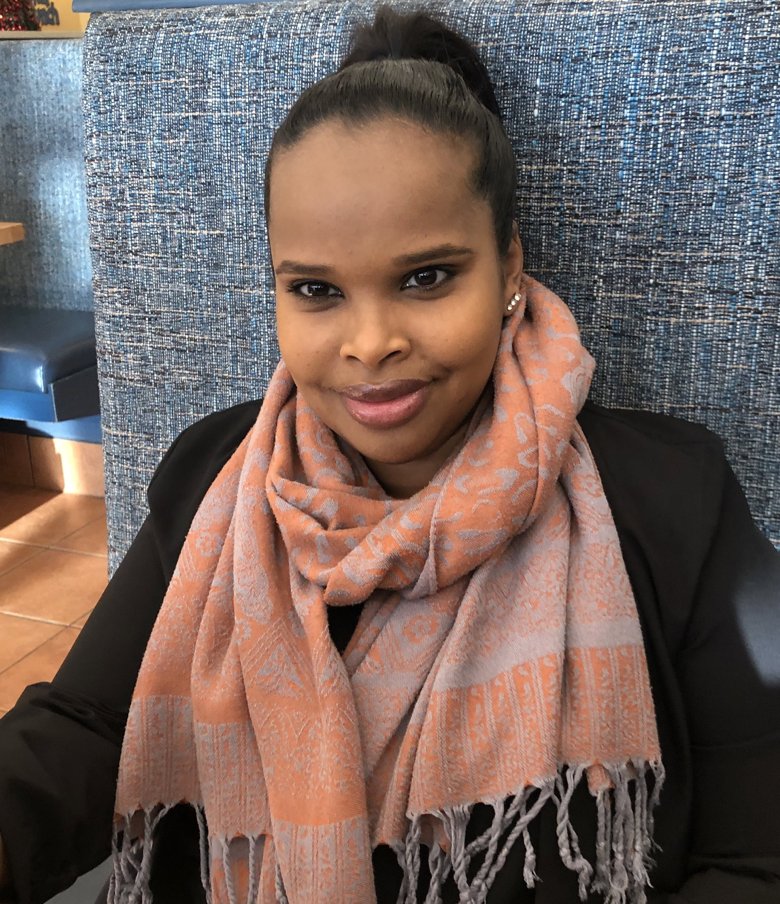By Safia Ibrahim
Oct. 24 marks World Polio Day, an international day aimed at raising awareness about the poliovirus — a debilitating and sometimes life-threatening disease that mainly affects children under five years old.
Great strides have been made towards eradicating polio, and cases have been reduced by 99.9% since the introduction of the Global Polio Eradication Initiative in 1988. Now just two countries, Pakistan and Afghanistan, remain endemic with polio. But nevertheless, awareness and immunization programs around polio remain critical to achieving polio eradication by 2023.
It is estimated that, while much of the world’s polio cases have been greatly reduced, as many as 200,000 children could contract the virus globally every year if wild polio is not eradicated within the next decade.
Safia Ibrahim is a Special Vaccine Advocate for UNICEF Canada and advocates for programs and efforts aimed at ending polio and other infectious diseases, including the COVID-19 pandemic. Here, she describes her own experience of polio and its impacts, and why it’s so important to eradicate polio for good.
You can read more from the In My Own Words series here.

The COVID-19 pandemic hasn’t been easy on anyone. It came like a hurricane; disrupted our lives and sent everything into chaos. Suddenly it was dangerous to go out to do normal things like work, shop, or meet with a friend for a coffee.
It did its most severe damage to children in developing countries like Pakistan. Schools were closed down and, in order to protect health care workers and communities from COVID-19, a pause was put in place on immunization campaigns — including the efforts to eradicate polio.
COVID-19 has created a dire situation for girls the most, especially ones with disabilities because they face higher risk of violence, neglect, and they are the ones less likely to return to school. I know how these girls feel because I was once a girl with a disability in Somalia.
I contracted polio when I was a year old. Polio is a very contagious virus that attacks the infected person’s brain which then can lead to paralysis.
My parents made a choice for me when they opted not to have me vaccinated, and as a result I spent the first six years of my life crawling.
Back then, and in many places in the world today, when a child gets sick, especially a girl child, it isn’t just about the physical symptoms or long-term effects, but everything else that comes with an illness, such as rejection and stigma.
My parents treated me like I was a burden. I was afforded less time with them than my siblings. I was not allowed to go outside and play — to form friendships, to jump and skip, fall down and get back up again, to laugh, to have crushes, and to forget that I am late for dinner — again.
Nor was I allowed to learn through doing and building things — to create worlds from my imagination. To be Safia — which means ruler of all lands with the powers to fight off wicked monsters (actually just my annoying cousins).
I was not allowed to go to school and learn, while often even boys with disabilities would be afforded this. I was held back from developing my bright ideas, to realize my creativity, to stand my ground, and to find my voice.
I was repeatedly told I would never amount to anything, that I would never find a partner that would love me for me, and I would never have a family.
Contracting polio, as a girl, meant that to my family, to my society, I would never matter.
Around roughly the same time in 1988, the Global Polio Eradication Initiative was launched, and Canada and Canadians were among the first to join that fight.
At that time the polio virus paralyzed 350,000 children per year. Due to the partnerships of governments, private donors, health care workers, and volunteers, the World Health Organization declared Africa wild polio free on Aug. 25, 2020, and today we are 99.9% there globally.
All of these accomplishments have been encouraging, after all a win for polio is a win for global health.
But there are challenges that have put that progress at risk. When the COVID-19 pandemic was first declared early in March of this year, resources from the polio immunization campaign were diverted in countries such as Zimbabwe, and redirected to counter COVID-19.
Another obstacle that is hindering the eradication efforts is that more and more parents, like my own, are choosing to not vaccinate their children. Increased numbers of conflicts and forced displacement have made accessing children with essential life saving vaccines, not just difficult and complicated, but increasingly dangerous.
I believe every child, every girl, has a right to matter, to stand her ground, and to find her voice. And that’s the truth that stays with me throughout my work, throughout my advocacy towards polio eradication and health, for every child.
And for that reason on this World Polio Day I want to remind Canada and the world that we cannot wane in our commitment to every child. Surely no one, no child, should be left behind even during a pandemic.
If you're a writer, activist, or just have something to say, you can make submissions to Global Citizen's Contributing Writers Program by reaching out to contributors@globalcitizen.org.